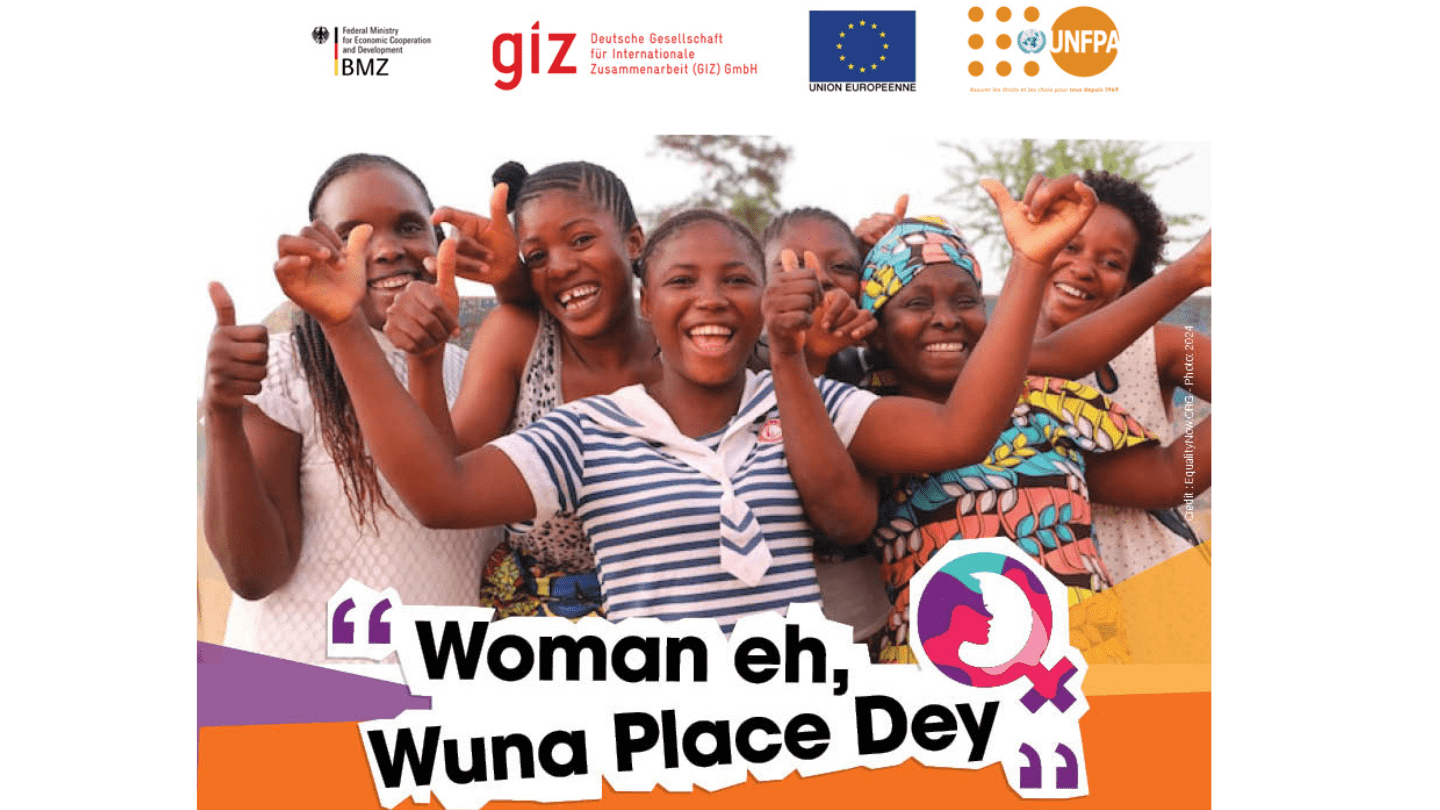The German Agency for International Cooperation (GIZ) and UNFPA joined forces in early February to launch "Women éh, Wuna place dey!" (Women have a say!), a four-year feminist and gender-transformative initiative focused on empowering women and girls in the Northwest and Southwest Regions of Cameroon. This initiative, with a budget of 3 million euros, is a key component of the broader GIZ project, "Promoting Gender Transformative Approaches to Resilience Building in Cameroon Civil Society" (PROSIG), funded by the European Union and the German Federal Ministry for Economic Cooperation and Development (BMZ).
"Women éh, Wuna place dey!" was officially launched during a training workshop held in Bafoussam from February 5th to 6th, 2025. Forty-eight participants, representing women's rights organizations, women-led organizations, and local government officials, gathered to discuss implementation strategies for the initiative. The workshop built upon previous consultations with key stakeholders to ensure a collaborative approach.
Mr. Harsdorf Christoff, GIZ Local Office Coordinator in Bamenda, explained that PROSIG aims to strengthen the capacity of Cameroonian civil society organizations to contribute effectively to development processes. A dedicated component of PROSIG focuses on ending gender-based violence (GBV), for which UNFPA is the main contracted partner. Mr. Harsdorf emphasized UNFPA's extensive experience in addressing GBV in Cameroon, its proven ability to deliver evidence-based results, its strong partnerships with state and government authorities, and its established widespread network with women and youth at the grassroots level.
“Women éh, Wuna place dey!” draws from the promise of the humanitarian-development-peace nexus to strengthen GBV protection for women and girls in the two regions affected by instability, the Northwest and Southwest. The initiative will enhance the capacity of civil society actors to deliver GBV services and reinforce prevention mechanisms and community resilience. The action aims to train 10,000 GBV service providers and reach 355,983 community members, particularly women and girls, with GBV protection services and information.
Following the launch in Bafoussam, Dr. Justin Koffi, UNFPA Resident Representative, traveled to Bamenda to introduce the initiative to partners and advocate for the engagement of local authorities and humanitarian actors. Dr. Koffi met with the Governors and the Regional Delegates for Women's Empowerment and the Family of the West, South West, and North West Regions. In advocating for a comprehensive approach to ending GBV integrated with sexual and reproductive health services, Dr. Koffi identified the Bamenda Regional Hospital as "an ideal location for a One-Stop Center—a place where survivors of GBV can access multisectoral services in a safe and confidential way". Wirba Asan, Regional Delegate for the Ministry of Women and the Family, underscored the urgent need for accessible services like the proposed GBV One-Stop Center at the Bamenda Regional Hospital.
In Cameroon, where 65% of GBV survivors seeking help report intimate partner violence and 33% experience sexual violence, a stark reality is that only 22% receive necessary referral services. This critical gap underscores the urgent need for strengthened responses. UNFPA, committed to universal access to sexual and reproductive health and rights, including the elimination of GBV, has prioritized this issue within its 2022-2026 country program, dedicating 26% of its activities to GBV-related work in the past year. Building on its global commitment to supporting women-led and women's rights organizations, UNFPA's new partnership with GIZ to eliminate GBV represents a significant acceleration of efforts towards achieving a future free from gender-based violence.


